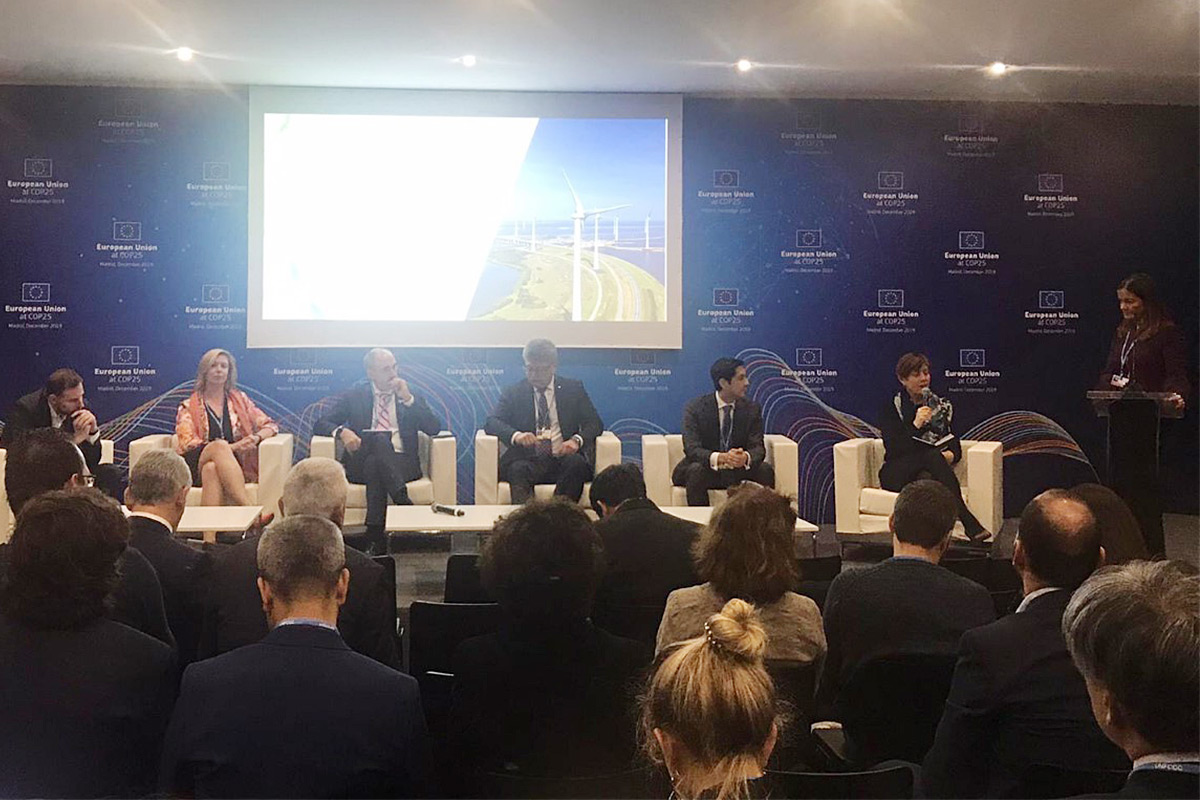News
WindEurope at COP25: This is how wind energy can help deliver a climate-neutral economy

10 December 2019
On 10 December WindEurope’s Iván Pineda spoke at the EU Energy Day side event of the United Nations Framework Convention on Climate Change (COP25) in Madrid. He spoke on a panel discussion: “Towards an energy system based on 100% renewables.”
Pineda was clear: “The number one objective is to fully decarbonise the power sector – and our work is far from over. The renewables target we have for 2030 is a milestone, but this milestone may not enable us to reach the terms of the Paris Agreement. Secondly, we need to integrate transport and heating into the clean electricity system.” Thirdly, he said that while Europe is tackling the easy-to-abate emissions, such as those in electricity, it must also reduce carbon emissions from the harder-to-abate sectors. “Use renewable electricity when and where available. Renewable gases where needed. Essentially, the lion’s share will have to come from the renewables-based electrification of the power mix.”
Recent discussions have focused on the size and scale of the transformation: should the energy transition happen at local levels before extending to national levels, or do we need a more top-down approach? Pineda said “There’s really no contradiction in any these approaches. But the scale of the challenge would need changes in policy. The right policies should give long-term visibility on volumes, revenues and be enshrined in practical, easy-to-implement legislation. This will attract a lot of investment. This is why the National Energy and Climate Plans are so important. They need to be very detailed. These need to be written as investment brochures.”
Pineda also said: “What we need is a clear and ambitious industrial strategy, with 4 components: 1) market scale & visibility linked to NECPs; 2) sustained investment in R&I; 3) RSM and policies that keep financing costs low; and 4) trade policies that leverage global supply chains”.
Such a strategy would create a job-rich energy transition. People already understand the socio-economic benefits that wind energy can bring. Around 80% of people in different European countries support more wind – and the same number of those living near wind farms are happy with them.
The recent EU elections outlined one key fact: people want more clean energy, and they want it now. There is widespread public support for the expansion of renewables, and wind energy is well-positioned to deliver benefits to people across Europe.
Wind energy is providing highly-skilled jobs via training centres for research, installation work, and much more. It is vital to promote more widely the benefits of wind energy in order to make the sector more attractive, diverse, and representative of the populations to which wind energy brings so many benefits.
COP25 continues in Madrid until 13 December.

